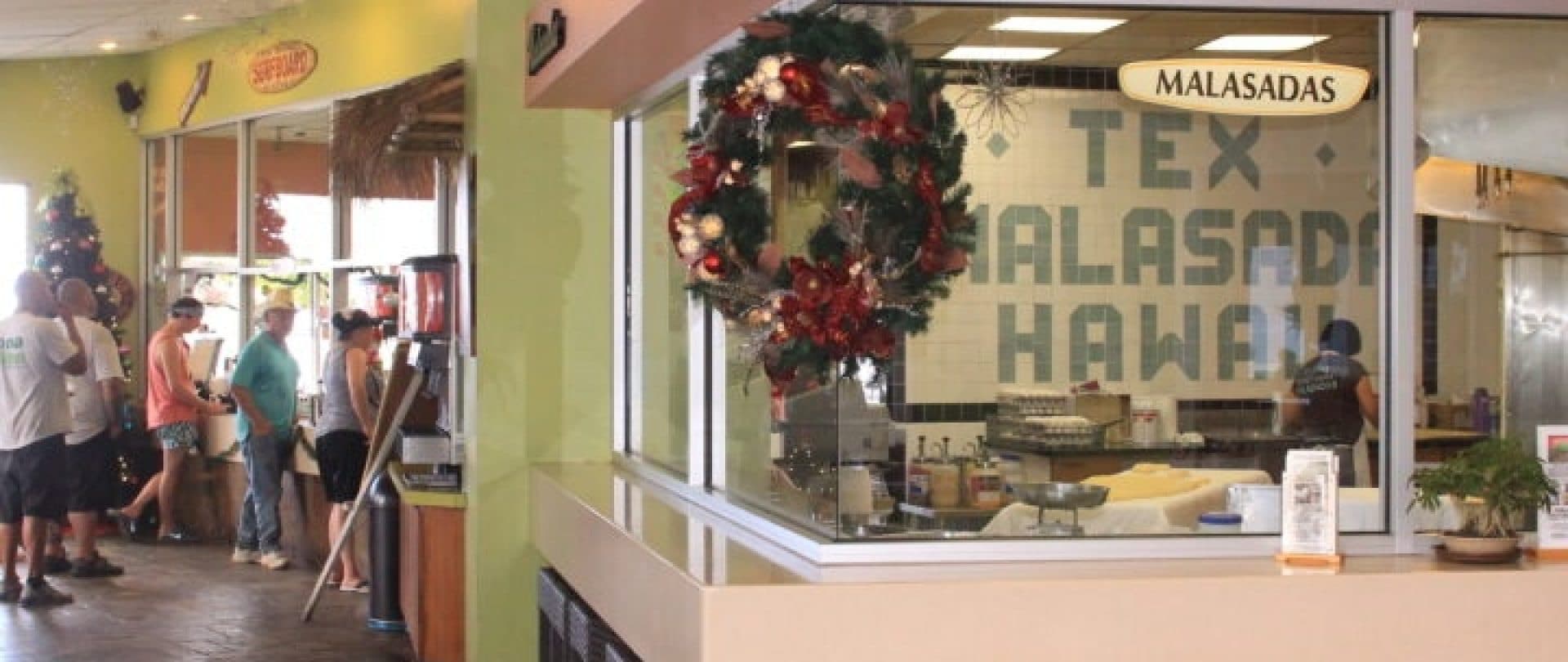Paradise Donuts
Malasadas are a Portugese treat that you must seek out in Hawai‘i
BY Brooke Rehmann
The first Portuguese immigrants arrived in Hawaiÿi during the 19th century from the Azores and Madeira. The initial Portuguese whaling ships brought a few hundred sailors; later in the same year, about 3,300 more plantation workers were brought to Hawai‘i. Around 1887, there was an estimated 10,000 Portuguese in Hawai‘i bringing not only their food, but also their Roman Catholic religious traditions. One community tradition for the Portuguese was using all the butter and sugar before Lent by making malasadas.
Malasadas, from the Portuguese word mal-assada meaning “under-cooked,” are deep-fried, hole-less donuts rolled in granulated cane sugar with slightly crispy exteriors and light, fluffy interiors. Popular pre-Lent celebrations of Mardi Gras, Shrove Tuesday, and Carnival occurred all over the world, but in Hawai‘i this celebration was known as Malasada Day during the 19th century. Today, the traditional malasada rolled in sugar is still popular, but there are other delicious versions filled with custard, chocolate, and even haupia (coconut pudding).
For those cruising along the Kohala Coast on the Queen K near Puakō or going through Waimea Town, Manuela Malasada Company, recognized by locals as the Blue Malasada Truck, serves up fresh and hot malasadas made to order, and has garnered quite a large following with many regulars. Try the cinnamon-sugar ones, or fillings, such as guava, mango, chocolate, haupia (coconut), or liliko‘i (passion fruit). Since it’s freshly made, you have to have a little patience, but they are definitely worth it.
You May Like
Local Vibe

Local Vibe
Birdʻs Eye View
The Japanese white-eye is a charming creature that is sure to catch your eye

Local Vibe
No Equipment Necessary
Catch a wave old-school style

Local Vibe
What a Shrimp!
The banded coral shrimp lives to keep reef fish clean

Local Vibe
Stay Grounded
Donʻt get caught being high makamaka

Local Vibe
Fruit of the Trunk
The jaboticaba is a uniquely bizarre fruit


